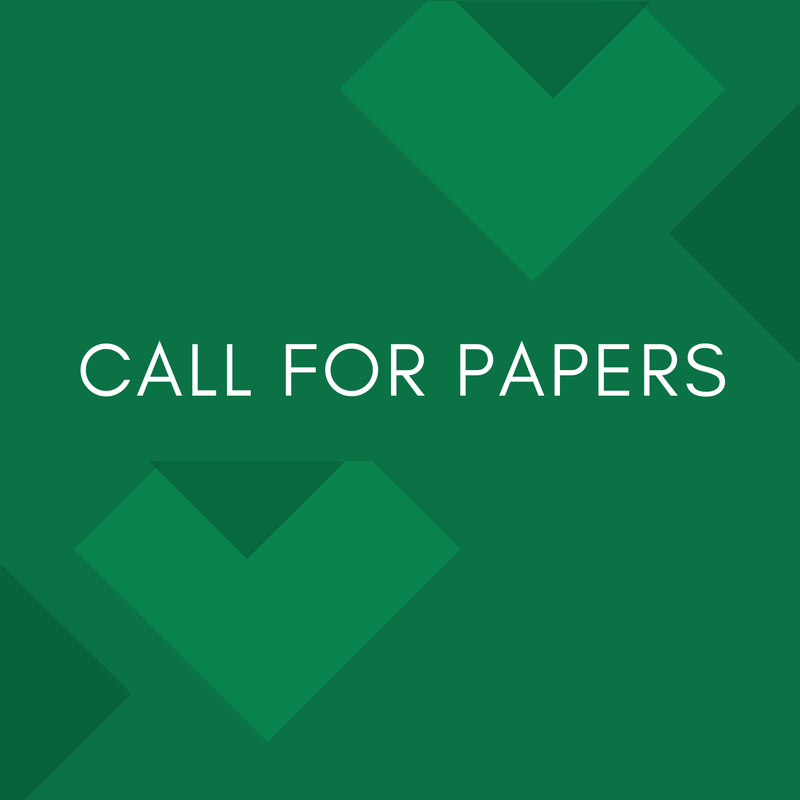- Home
- About
-
Publications
- Public Administration News
-
ARPA
>
- ARPA Scope and Objectives
- ARPA Editorial Board
- ARPA Call for Papers
- Submit Article
-
ARPA Open Access
>
- India (2020-2023, Vol. 31, Nos. 1&2, pg. 4-22)
- Nepal (2020-2023, Vol. 31, Nos. 1&2, pg. 23-46)
- Vietnam (2020-2023, Vol. 31, Nos. 1&2, pg. 47-67)
- China (2020-2023, Vol. 31, Nos. 1&2, pg. 68-79)
- South Korea (2020-2023, Vol. 31, Nos. 1&2, pg. 80-99)
- Bangladesh (2020-2023, Vol. 31, Nos. 1&2, pg. 100-119)
- USA (2020-2023, Vol. 31, Nos. 1&2, pg. 120-141)
- Abstracts >
- Publication Ethics and Malpractice Statement
- Notes for Contributors
- Journal Indexing
- EROPA Bulletin >
- Resources >
- Membership
-
Conferences
-
Activities
- #TAG Dialogue
- Contact Us
About the Journal
The Asian Review of Public Administration (ARPA) is the flagship journal of the Eastern Regional Organization for Public Administration (EROPA). It is an internationally-refereed journal in the field of public administration and governance in Asia and the Pacific region and beyond.
<
>
JOURNAL ARTICLES
Asian Review of Public Administration Vol. 31, Nos. 1&2
Editorial Introduction Kristoffer B. Berse, Rizalino B. Cruz Administrative Decentralization and Combating Covid-19:
The Case of a South Indian State Bala Ramulu Chinnala, Sudarshanam Gankidi FULL TEXT | PDF AbstractDecentralization is a vital strategy of governments the world over, tailored to eliminate the drawbacks of excessive centralization and promote the effectiveness of administrative systems. In India, administrative decentralization has been viewed as a crucial strategy for addressing the challenges of public service delivery. Several state governments have rationalized the jurisdictional areas of the local administrative units—the districts, planning bodies, local bodies, and special agencies. The analysis reveals that the Covid-19 pandemic has taught us lessons. First, the crisis has exposed the multiple vulnerabilities of India’s development model very starkly in tackling the pandemics. Second, there is a desperate need to put in place a system of universal health care. Third, there are enormous opportunities to reorient our priorities to overcome the crises. The south Indian state of Telangana experience, however, shows that measures initiated in 2016, i.e., territorial decentralization and other measures, inadvertently enabled the government to combat Covid-19 effectively. The field evidence reveals that the role of public institutions, particularly in healthcare, is unparalleled by private institutions in providing safety and basic services to people, thus putting administrative decentralization and public health institutions on the national agenda once again for debate to restructure state/national administrative units. Keywords: central and state governments, decentralization, districts reorganization, education, lockdown, migrants, pandemic, public health, public institutions, rural-urban local bodies.CitationChinnala, B. R., & Gankidi, S. (2020-2023). Administrative Decentralization and Combating Covid-19: The Case of a South Indian State. Asian Review of Public Administration, Vol. 31, Nos. 1&2, 4-22.Surviving the Crisis: Making Intergovernmental Relations Strong for Fighting
the Pandemic, Case from Nepal Trilochan Pokharel FULL TEXT | PDF AbstractThe aftermath of the COVID-19 pandemic is still scary for many countries. Despite having a relatively lower number of casualties compared to some advanced countries, the developing and transitional countries witnessed social and economic impacts. Nepal, an emerging economy, has been accelerating to institutionalize the recent constitutional and political transformation implemented through the 2015 Constitution. The recently adopted federal form of governance has shared state authorities among the federal, provincial, and local governments including management of health services and other emergencies. This new set of governance arrangements has been expected to deliver public services and protect people’s fundamental rights in an efficient, coordinated, and economic way. For a disaster- prone country like Nepal, the COVID-19 crisis exposed its weary and transitional crisis governance. Several gaps have been identified in the ways the government took initiatives. The major challenges were about the defined leadership roles, intergovernmental coordination, indicator-based financial allocation, and capacity of crisis management institutions, including the health care facilities. This paper analyzes Nepal’s efforts to manage COVID-19 in the broader landscape of political governance and disaster risk profiles and offers insights on intergovernmental relations drawing from three rounds of surveys conducted between 2020 and 2021 among Nepal’s local governments. The studies record a positive response to the functions of local governments as they felt accountable for addressing public concerns. It further reports a number of critical gaps in intergovernmental relations for dealing with COVID-19. Discrete leadership and poor vertical and horizontal coordination and communication, mismatch in funding and COVID-19 caseload and lack of post-recovery plan at all levels of the government made the crisis governance inefficient, increasing the burden on people. Extensive interactions and engagement, organized and collaborative leadership among the orders of the government and strengthening the capacity of the sub-national governments would be instrumental in dealing with such crises in the future. Keywords: intergovernmental relations, crisis management strategiesCitationPokharel, T. (2020-2023). Surviving the Crisis: Making Intergovernmental Relations Strong for Fighting the Pandemic, Case from Nepal. Asian Review for Public Administration, Vol. 31, Nos. 1&2, 23-46.Policy Responses to COVID-19 within the Context of SDGs: Experience from Local Governments in Vietnam
Trinh Hoang Hong Hue FULL TEXT | PDF AbstractGood health and well-being are the essential goals to achieve sustainable development. However, having seriously hit all corners of the world since January 2020, the COVID-19 pandemic has become one of the fiercest health crises in human history. It challenges governments to have prompt and accurate control actions. Although a developing country with limited resources and low technological capacities, Vietnam has succeeded in controlling the outbreak with rapid and drastic measures, especially in policy responses of the central government to COVID-19 from the early days. Simultaneously, most local governments in Vietnam also had valuable tools to mitigate this pandemic’s adverse impacts in each province’s unique context. This study selects three centrally controlled municipalities of Vietnam, including Ha Noi, Ho Chi Minh City, and Da Nang, as case studies to analyze their diverse policy responses to COVID-19. We analyze data on cases of infection, death, and recovery from coronavirus (COVID-19) in Vietnam by province from the Open Development Mekong website. Additionally, regarding country-level and municipal-level responses, we review relevant documents issued on the online database “Vietnam Laws Repository” and other relevant official websites. This study aims to give insights into the municipal government’s progress in policy responses in Vietnam during three waves of the outbreak, including the first wave (March-April 2020), the second wave (July – September 2020), and the third wave (January-March 2021). Based on critical elements for localizing the Sustainable Development Goals (SDGs) in the local government in the future: multilevel governance, city preparedness, integrated planning, and strategy for implementation, we draw lessons from the COVID-19 responses of three cities in Vietnam, a developing country. To prepare for similar future outbreaks to fulfill SDGs, local governments may comply strictly with national guidelines and policies, public information, healthcare, adaptive behavior changes to mobility restriction, community mitigation measures, social security, and local governance. Keywords: policy response, local government, Vietnam, COVID-19, SDGsCitationHue, T. H. (2020-2023). Policy Responses to COVID-19 within the Context of SDGs: Experience from Local Governments in Vietnam. Asian Review for Public Administration, Vol. 31, Nos. 1&2, 47-67.Work Resumption and Employment Stabilization Measures against COVID-19: China’s Experience
Yuchen Wu, Ying Xiong FULL TEXT | PDF AbstractSince the COVID-19 epidemic, the Chinese government has responded to the health threat and impact of the epidemic by stopping work and production and has achieved positive results. This article elaborates on the effectiveness of China's economic and administrative governance during the epidemic from several aspects, including the challenges faced by China in resuming work and production after the epidemic, the overall thinking and focus of promoting resumption of work and production, the effectiveness of promoting resumption of work and production, and the role of China's resumption of work and production during the global pandemic. It provides a reference for countries around the world to respond to the epidemic and resume production. Keywords: post pandemic work resumption challenge, priorities and counter measuresCitationWu, Y., & Xiong , Y. (2020-2023). Work Resumption and Employment Stabilization Measures against COVID-19: The Experience of China. Asian Review for Public Administration, Vol. 31, Nos. 1&2, 68-79.Analyzing South Korea’s COVID-19 Policy Strategy Using a Regression Discontinuity Research Design
Gi Heon Kwon, Da Sol Lee, and Jungmin Hwang FULL TEXT | PDF AbstractSince its first outbreak in 2019, the coronavirus disease 2019 (COVID-19) pandemic has been one of the most devastating global disasters, resulting in millions of casualties worldwide. While governments have put tremendous efforts into controlling and eradicating the virus, the unprecedented nature of COVID- 19 calls into question the government’s capacity for disease management. This study analyzed the effectiveness of South Korea’s COVID-19 policy by focusing on the causal relationship between instantaneous reproduction number, Rt, and three different restriction policies: business closure, private gathering limit, and vaccine pass requirement. Using a sharp regression discontinuity design with a non-parametric estimation, this study found a positive effect of each restriction policy on decreasing Rt. The results suggest that not only traditional restrictive strategies, such as business closure and gathering restriction, but also digital capacity could play a significant role in disaster management during global pandemics. Keywords: COVID-19, vaccine pass, regression discontinuity design, reproduction number, disaster managementCitationKwon, G., Lee, D., & Hwang, J. (2020-2023). Analyzing South Korea’s COVID-19 Policy Strategy Using a Regression Discontinuity Research Design. Asian Review for Public Administration, Vol. 31, Nos. 1&2, 80-99.Dilemmas of Policy Response during COVID-19 Pandemic: The Case of University
of Rajshahi, Bangladesh Shuvra Chowdhury, Sajib Kumar Roy, Dabjani Saha, Aria Ashraf Anushakha, Asif All Mahmud Akash FULL TEXT | PDF AbstractThe task of a tertiary-level educational institution is knowledge creation. It is necessary to meet the demands of the changing time and situations. What is the state of the tertiary-level educational institute during a pandemic? How did the authority face the challenges and respond to the policy decision taken by the government? This article followed a case-oriented qualitative research strategy, used empirical data, and followed both primary and secondary sources. It analyzed the dilemmas of policy response of the University of Rajshahi. This study found mixed results. The online teaching-learning process kept the students engaged with their academic activities, teachers completed the courses on time, and maintained communication between students and teachers. However, considering the contextual challenges including the socioeconomic-psychological profile of the students and the incapacity of conducting online teaching, this article recommended some areas for further research. Keywords: policy response, COVID-19 pandemic, policy process, tertiary-level educationCitationChowdhury, S., Roy, S., Saha, D., Anushakha, A., & Akash, A. (2020-2023). Dilemmas of Policy Response During COVID-19 Pandemic: The Case of the University of Rajshahi, Bangladesh. Asian Review for Public Administration, Vol. 31, Nos. 1&2, 100-119.COVID-19 and Policy Failure in the United States: The “Inequality Virus” and Practitioner Interaction with Social Inequity Challenges
Rebecca M. Entress, Claire Connolly Knox, Kim Moloney FULL TEXT | PDF AbstractThis study explores the social equity issues that U.S. public administrators perceived as the main challenges during the COVID-19 pandemic. Using data from a national survey of public administrators, this study reveals that respondents believed that the pandemic both highlighted and worsened existing inequities, specifically economic, racial/ethnic, and health inequities. It was more difficult for public administrators to provide services during COVID-19 because of difficulty accessing and communicating with the public. This combined with workforce challenges to weaken the administrative response. Public administrators reported that some changes were made to improve social equity, but more work is needed. Keywords: social inequity issues, bureaucratic discretion, policy failureCitationEntress, R. M., Knox, C., & Moloney, K. (2020-2023). COVID-19 and Policy Failure in the United States: The “Inequality Virus” and Practitioner Interaction with Social Inequity Challenges. Asian Review of Public Administration Vol. 31, Nos. 1&2, 120-144.
<
>
Page under construction.
Page under construction.
|
|
- Home
- About
-
Publications
- Public Administration News
-
ARPA
>
- ARPA Scope and Objectives
- ARPA Editorial Board
- ARPA Call for Papers
- Submit Article
-
ARPA Open Access
>
- India (2020-2023, Vol. 31, Nos. 1&2, pg. 4-22)
- Nepal (2020-2023, Vol. 31, Nos. 1&2, pg. 23-46)
- Vietnam (2020-2023, Vol. 31, Nos. 1&2, pg. 47-67)
- China (2020-2023, Vol. 31, Nos. 1&2, pg. 68-79)
- South Korea (2020-2023, Vol. 31, Nos. 1&2, pg. 80-99)
- Bangladesh (2020-2023, Vol. 31, Nos. 1&2, pg. 100-119)
- USA (2020-2023, Vol. 31, Nos. 1&2, pg. 120-141)
- Abstracts >
- Publication Ethics and Malpractice Statement
- Notes for Contributors
- Journal Indexing
- EROPA Bulletin >
- Resources >
- Membership
-
Conferences
-
Activities
- #TAG Dialogue
- Contact Us



